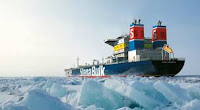We are all becoming increasingly familiar with the impacts of invasive species. Knotweed from Japan can destroy building foundations, zebra mussels from eastern Europe can clog-up drinking water pipes, and an Asian fungus is causing ash tree die-back in our forests. Now an international team of scientists has identified how our rapidly changing world will bring new types of invaders, often from very unexpected places.
Invasive non-native species are among the greatest drivers of biodiversity loss on the planet and cost the British economy £1.7bn ($4.1 bn) each year. "Our study found that environmental change, new biotechnology and even political instability are all likely to result in new invasions that we should all be worried about" said Dr. David Aldridge of Cambridge University, who hosted the meeting of 17 scientists from across four continents.
Globalization of the Arctic, emergence of invasive microbial pathogens, advances in genomic modification technology, and changing agricultural practices were judged to be among the 14 most significant issues potentially affecting how invasive species are studied and managed over the next two decades. "We have identified some potential game-changers" said Prof. Anthony Ricciardi from McGill University, who led the study.
Globalization of the Arctic
Until now, the Arctic has been among the least accessible regions on the planet, escaping extensive alien species invasions like those that have affected temperate and tropical areas of the world. However, the rapid loss of sea ice is opening the region to shipping, oil and mineral extraction, fishing, tourism, and shoreline development -- all of which facilitate introductions of alien species.
The loss of sea ice is also creating a major new corridor for international shipping between the Pacific and Atlantic Oceans, which will affect invasion risks throughout the Northern Hemisphere. "The gold rush has begun for major expansion of human activities in the Arctic, with the potential for large-scale alien species transfers" says Dr. Greg Ruiz (Smithsonian Environmental Research Center).
Read more at The World Should Brace Itself for a New Wave of Biological Invasions

No comments:
Post a Comment